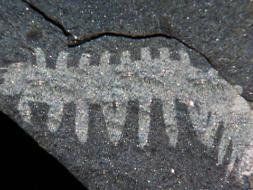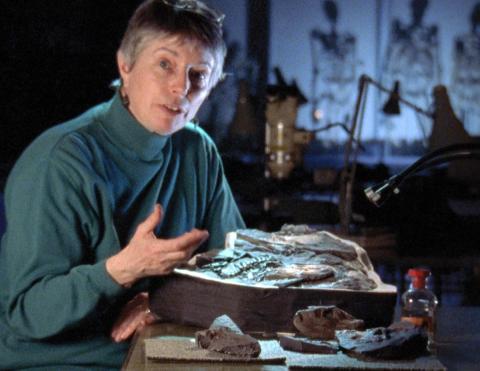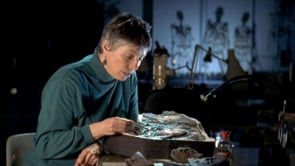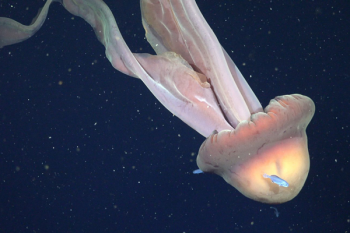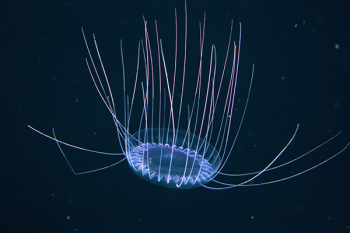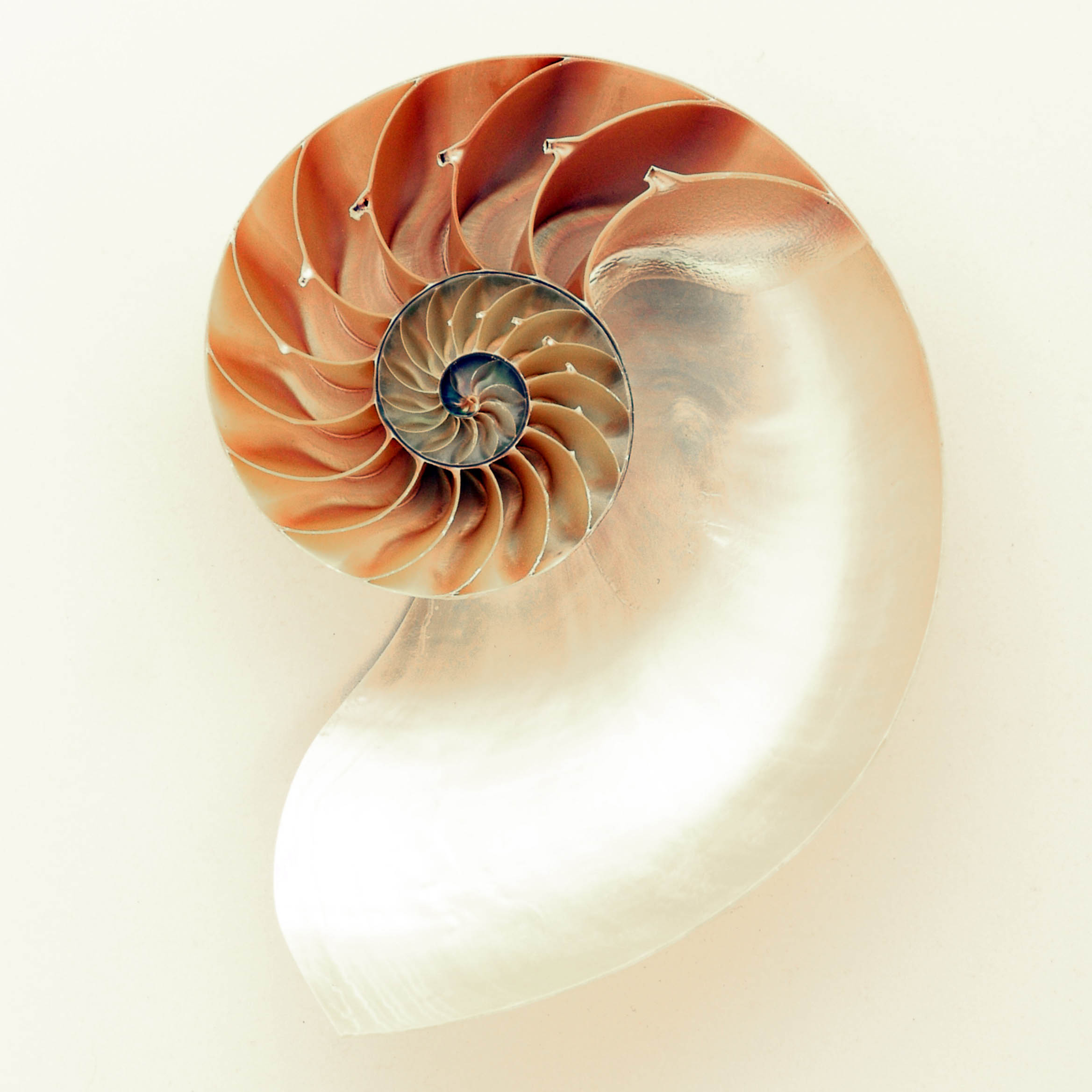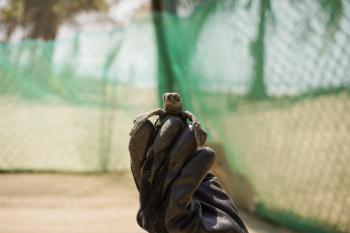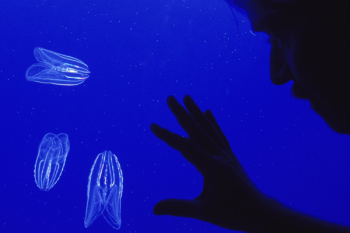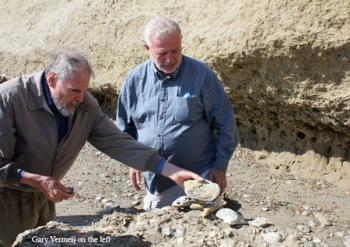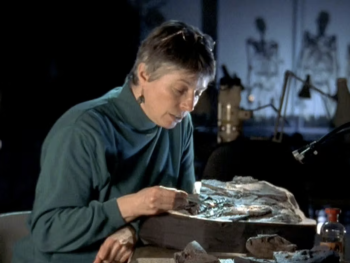
It's every paleontologist's dream to find a transitional form, something that falls between two groups that we are familiar with, that sort of links them both in terms of anatomy and lifestyle.-- Jenny Clack
At Cambridge University's Museum of Zoology, Paleontologist Jenny Clack solved one of the greatest mysteries in the history of life on Earth: how vertebrates made the transition from sea to land, from animals with fins to animals with legs. Convincing evidence that limbs evolved while tetrapods (vertebrates with four appendages) were still water-bound comes from a fossil Clack discovered in the mountains of Greenland, in 1987. She gave the 360 million year old specimen, a fossil of the creature Acanthostega, the nickname "Boris."
Her study of Boris revealed that it was a fishlike animal with limbs. "This is a specimen of an animal that could be described as a missing link, except that we have one so it's not missing," Clack says. "Its a transitional form between animals with fins that we'd call fish, and animals with legs, with fingers and toes on the end that we call tetrapods. We are tetrapods." Clack also found evidence of early tetrapods on Valencia Island, off the southwest coast of Ireland. There, she studied the fossilized tracks an early tetrapod left in the mud of the shallows of an ancient shore. She could tell from the tracks and the surrounding rocks that it was one of the early vertebrates to leave its footprints on land.
About Jenny Clack’s career
Jennifer Clack, Ph.D., is a Professor and Curator of Vertebrate Paleontology at the Cambridge University’s Museum of Zoology where she does research and teaches. Clack received a Ph.D. in Zoology from the University of Newcastle in 1984. She also holds a Graduate Certificate in Museum Studies from the University of Leicester and a M.A. from the University of Cambridge.
Clack’s research takes her into the field, and then back to her lab to study the fossils she’s collected. Her research is about early tetrapods—their origin, evolutionary development and radiation among the lobe-finned fish. Her research interests include: the timing and sequence of skeletal and other changes which occurred during the transition from water to land, the origin and relationship of the diverse tetrapods of the Late Paleozoic and the origins of the modern radiation of tetrapods. In addition to “Boris” and the earlier fossil she discovered, Clack has found and studied other early fossil tetrapods from the Devonian (416 to 315 million years ago). She has written a book, Gaining Ground: the Origin and Evolution of Tetrapods about her area of research. Clack has been dubbed “the diva of the Devonian” by the media for her expertise in evolution during that period.
